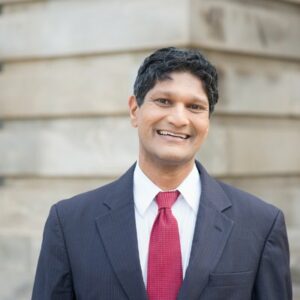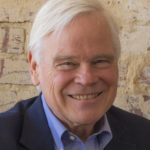If you want to understand what has been happening in this year’s presidential contest, it will help if you know the term “Desi.”
Desi is a term used to describe or identify immigrants and other people connected to the Indian subcontinent.
Desi is not a word you would have ever needed to explain American presidential politics until the 2020 presidential election when Kamala Harris was briefly a candidate for the Democratic nomination, and then became the Democrats’ vice-presidential nominee.
During her short 2020 primary campaign, voters learned that Harris’s mother was an immigrant from India and her father was a Black immigrant from Jamaica.
Harris did not make much of it, but she quietly claimed her many Desi connections.
Last Wednesday at the National Association of Black Journalists convention in Chicago, former President Trump said that Harris was newly claiming a Black identity. He said, “I didn’t know she was Black until a number of years ago when she happened to turn Black, and now she wants to be known as Black.”
“So I don’t know. Is she Indian? Or is she Black?”
The BBC, reporting on the convention, explained, “Ms. Harris has described growing up engaged with her Indian heritage and often visited the country. Her mother also immersed her two daughters in the Black culture of Oakland, California–where she was raised, she said.”
For five years, beginning in 1976 Harris and her sister shuttled between Montreal, Canada, where their mother was doing breast cancer research, and California, where her father was an economist at Stanford.
Harris has a wide range of cultural and religious connections. Growing up, she attended Baptist churches and visited Hindu temples. She joined San Francisco’s Third Baptist Church. She married into a Jewish family. Her Indian heritage make her a Desi.
It was Nikki Randhawa Haley, former South Carolina governor, former U.N. Ambassador, and candidate for the 2024 Republican presidential nomination, who first got my attention to the growing participation of Desis in American political life. She was brave enough to challenge Donald Trump in this year’s Republican primaries. She was also did not hide her origins as the child of immigrants from India.
Another Desi who gained attention in the 2024 Republican presidential primaries is Vivek Ramaswamy, young wealthy businessperson whose parents were born in India. Ramaswamy’s Yale Law School classmate, Republican vice-presidential nominee, JD Vance, is married to another Yale classmate, Usha Chilukuri Vance.

Sen. Jay Chaudhuri (photo via Twitter/X)
North Carolina has at least one important political Desi, State Senator Jay Chaudhuri (D-Wake). His parents were Bengal immigrants. Although he was born in Tennessee, his parents moved to Fayetteville when he was three. He attended Terry Sanford High School in Fayetteville, and later Davidson College, Columbia University, and finally N.C. Central University School of Law.
As we begin to see more representation from Desis in politics and in America at large, places like North Carolina — with a relatively high proportion of high-paying jobs and a strong cost-of-living ratio at the present time — will continue to see more people of all kinds moving here and becoming part of the present and future we build together.
 D.G. Martin, a lawyer, retired as UNC system vice president for public affairs in 1997. He hosted PBC-NC’s “North Carolina Bookwatch,” for more than 20 years.
D.G. Martin, a lawyer, retired as UNC system vice president for public affairs in 1997. He hosted PBC-NC’s “North Carolina Bookwatch,” for more than 20 years.
Chapelboro.com does not charge subscription fees, and you can directly support our efforts in local journalism here. Want more of what you see on Chapelboro? Let us bring free local news and community information to you by signing up for our newsletter.

